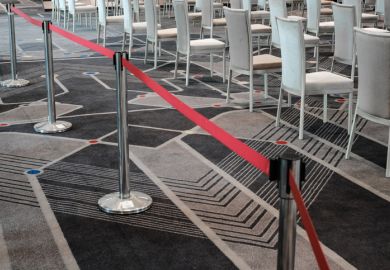Lecturers are typically defined by their research profile or by their focus on teaching. But what about those scholars who do not fit into either category?
These are the “academic artisans”, a new study argues: lecturers who are not highly productive researchers but, far from being lazy or deficient, are often the individuals who keep universities ticking over.
They may help to do this by, say, taking on a larger share of undergraduate teaching and administration, which allows other academics to concentrate on research.
Angela Brew, professorial fellow in the Learning and Teaching Centre of Sydney’s Macquarie University, told the conference of the Society for Research into Higher Education that the important role played by “artisans” should be given more recognition in the academy.
Working with David Boud of Deakin University, Karin Crawford of the University of Lincoln, and Lisa Lucas of the University of Bristol, Professor Brew surveyed 2,131 academics in the UK and Australia about their working practices.
They found that a significant number of respondents who considered themselves to be research-active or were in research teams were not actually particularly productive in terms of publications; and that this group spent an average of five additional hours a week teaching compared with more prolific researchers.
In interviews, it emerged that many academics who did not publish a lot also took on important administrative tasks, such as coordinating undergraduate courses, overseeing teaching at satellite campuses and chairing committees.
Professor Brew argued that this group of “artisans” was clearly distinct from teaching-only academics by virtue of the range of tasks they performed, and said that those who suggested that they were “lazy, unqualified or lacking the necessary skills to succeed” were wrong.
“We are suggesting that they are not deficient: they are actually holding the university together, they are actually facilitating research by not taking part in it,” Professor Brew said. “Instead, they are taking a larger share of undergraduate teaching and taking a greater role in organising teaching and the way research happens.
“They make the university function more effectively.”
POSTSCRIPT:
Print headline: ‘Artisans’ are the catalysts for research
Register to continue
Why register?
- Registration is free and only takes a moment
- Once registered, you can read 3 articles a month
- Sign up for our newsletter
Subscribe
Or subscribe for unlimited access to:
- Unlimited access to news, views, insights & reviews
- Digital editions
- Digital access to THE’s university and college rankings analysis
Already registered or a current subscriber?







